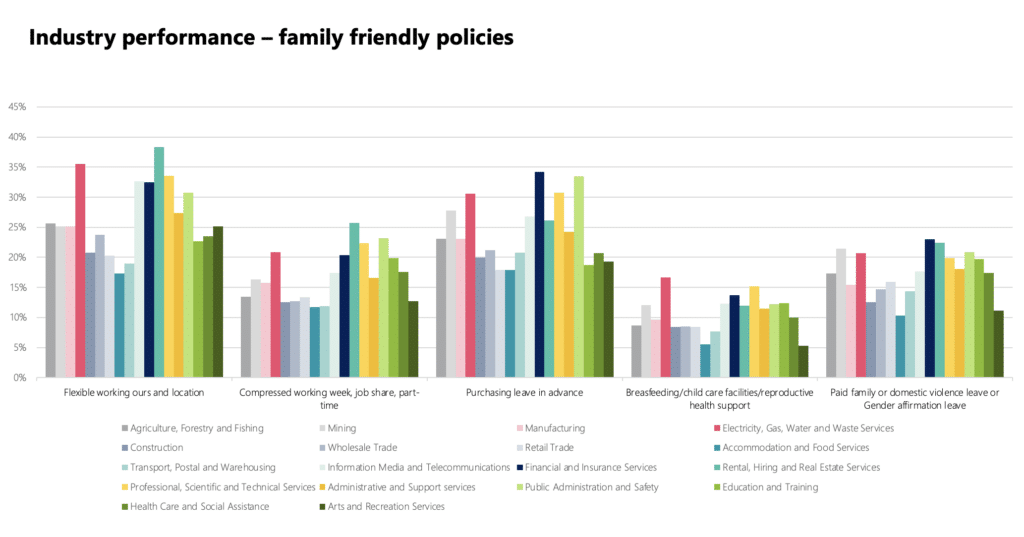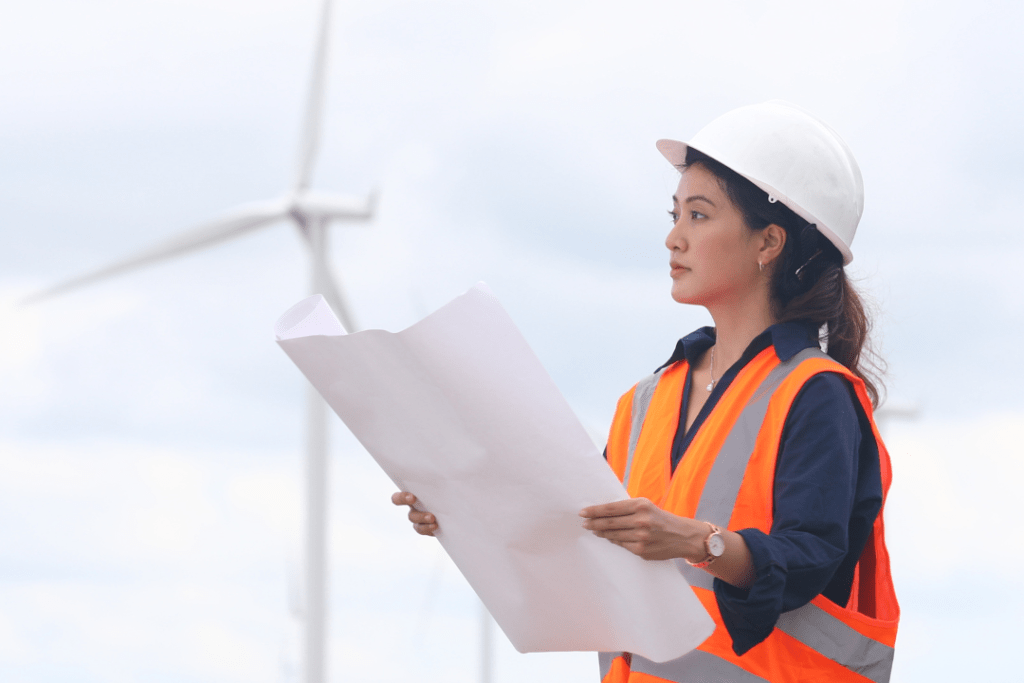The Albanese Government outlined a $22.7 billion plan to build a “Future Made in Australia” as part of its 2024-25 Federal Budget, with male-dominated industries heavily in focus.
It’s a bold vision for the future, addressing global supply chains under pressure, and aiming to maximise Australia’s potential across emerging clean energy industries.
The plan relies heavily on getting skilled people involved, including in recruiting and training women to help meet shortages in these industries.
But for this to be a reality, workplaces will need to better address stubborn gender norms and inflexible work practices that contribute to work life conflict, placing an unfair burden on women to carry the caring load. New research published this month by UNICEF Australia and Parents At Work from the 2024 National Working Families Survey explored the experiences of 6200 working parents and carers to learn how they are coping with balancing these competing loads in 2024.
The results are telling when it comes to looking at how to build sustainable careers in fast-growing industries.
Despite a significant increase in remote and hybrid working options during the pandemic, there was little improvement in employee health and wellbeing since the first such study in 2019.
There was little progress in dismantling long-held gender norms and standards that underpin how we work and care. Men as primary income earners and women as primary caregivers is the narrative that still dominates workplace culture.
Accessing flexibility continues to be viewed as a career risk, while half of the respondents agreed that their commitment to the job is questioned if they use family-friendly work arrangements.
Industries dominated by men tend to have fewer family-friendly policies than those dominated by women or with a more balanced gender distribution.
These are all factors that should be considered when it comes to investing in industries that are already gender segregated.
Shifting this narrative for a ‘Future Made in Australia’
The “Future Made in Australia” plan includes investments and capacity building to position Australia as competitive in fast-growing industries.
Importantly, the plan outlines $55.6 million for the Building Women’s Careers program, identifying that women are essential for meeting skills demand.
However, the plan would also benefit from considering and incorporating the long-term benefits of creating family-inclusive environments for the workforce across these areas.
Without this, we’ll be building up a workforce for new and fast-growing industries that share the same gender-norm narratives of the past, and therefore fail to address the tension working parents and carers contend with between work and family life.
This is especially true as the industries the plan targets are male-dominated, which as seen from the Survey research, are more likely to lack the family-friendly policies of more mixed-gender and female-dominated sectors.

Fifteen per cent of employees say they are still not comfortable discussing work and family leave with their managers. While this is down from 20 per cent in 2019, those who continue to sense discomfort tend to be overrepresented in male-dominated industries.
Almost two in five employees (38 per cent) say they want more access to caring support from their employer, while around the same number (41 per cent) of parents say they want longer parental leave.
Not only must we attain the skills we need for this Future Plan but also retain them. We must also consider the risk of employees exiting these industries should they not have the support they need. Almost a third of respondents (28 per cent) said they have considered leaving their jobs in the next 12 months due to difficulties combining their jobs with caring responsibilities.
Employers must also consider the sustainability of careers, including the health and wellbeing of working parents and carers. Otherwise, we risk investing in people only to have them burn out, experience ill health, and potentially leave.
Stress is on the increase for these working parents and carers, especially among women, when we compare our 2024 results with those collected in 2019.
Women continue to carry the lion’s share of the caring load and household duties, at a rate nearly double that of men, despite working similar hours.
Fifty eight per cent of working parents and carers say they are often too physically or emotionally drained when they get home from work to contribute to their families, and 42 per cent say they have difficulties looking after their own physical and mental health due to competing work and family pressures.
This is not sustainable. Given the investments Australia is making into health now and into the future, we should also consider the health consequences of competing work and family demands – including how long-held gender norms are contributing.
Policies and practices that invest in promoting more gender-neutral caregiving must be fast-tracked.
Men are not being offered the paid parental leave they want and need, which continues to hinder opportunities for sharing the load at home.
The Survey found that the most common reason men cited for taking short stints of paid parental leave was that they were not eligible for longer periods under the policies of the companies they work for. Almost half of men (48 per cent) take less than one month of paid parental leave, while 91 per cent of women take more than four months. Two-thirds of all parents and carers noted financial reasons for not taking longer. Men are less supported than women by their employers when it comes to taking off time to care for their families.
Women, meanwhile, will place greater importance on flexible work arrangements than men when it comes to considering a new role.
Any male-dominated industry that needs to attract more women to meet the worker shortage must consider the fact that 60 per cent of female parents and carers will not apply for jobs that don’t have flexibility.
So while boosting women’s skills is necessary for a vision for the country that depends on already male-dominated workplaces, we should also raise our expectations of workplaces to ensure they offer workplace flexibility, inclusive leave policies, remote working options where possible, and other initiatives that recognise employees have lives outside of work.
Making this happen at the start of a plan will be easier than trying to address these issues later on. A future made in Australia must ease the tension Australians experience managing the competing expectations between work and family life.
The full report will be released next week on the 30th of May and include recommendations for employers and governments.
Visit www.nationalworkingfamiliesreport.org to receive a copy.
You can also join the free webinar on the 4th of June that will explain how this report will impact workplaces and what progressive employers are already doing to drive change.


